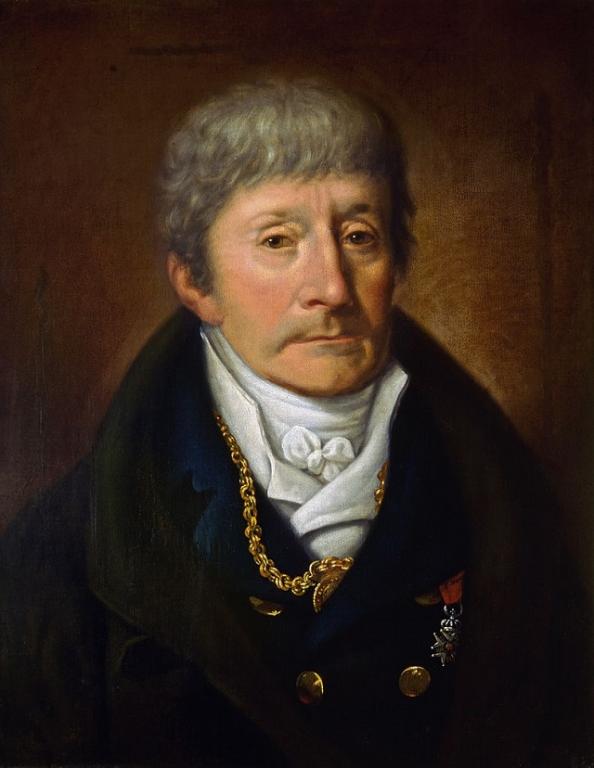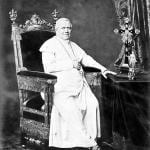
I got into an intense discussion with a friend of mine, thus stimulating these thoughts of mine that express a pet peeve that has bothered me since as long as I can remember. I include only my own portion (edited for the purpose of this article).
*****
— Spoiler alert for those who haven’t seen Amadeus: a film about the composer Wolfgang Amadeus Mozart. —
I like movies that are true to the facts, if they are based on actual events. So in the overall mix, I’d put accuracy relatively higher than high artistic elements (if a choice “must” be made between the two).
The classic example I always use in this regard is Amadeus (the 1984 film), which was based on a complete myth of the jealousy of Mozart’s fellow composer Antonio Salieri. So it made for a dramatic movie and a better plot? I don’t give a rat’s rear end about that, if it butchers the known historical facts. I say that actual history is invariably more interesting and complex than myths anyway. I’m not opposed to historical fiction, but that’s dealing with (as I understand it) plausible speculation concerning unknown things, rather than deliberately butchering known historical facts.
As one who writes a lot about history and loves that subject, and as a great lover of biography in particular, I place a premium on historical accuracy and consider it highly important, but at the same time not in and of itself antithetical to artistic elements.
I’ve seen at least 25 documentaries about the making of movies and the filmmakers will expend the greatest effort to get every jot and tittle of period costumes, etc. accurate, but then they will introduce historical inaccuracies into the story. That makes no sense to me. If you’re gonna go to those lengths to get a period sofa or the norms of polite society in any given period and culture correct, then be consistent and get the biographical facts correct too!
I think it’s a decent analogical argument: why do one historical thing (about material items) but care a lot less about the other (concerning human beings and their lives)? Why bother at all if those sorts of things matter so little? They have to do with historical facts, as we can best ascertain them. There is no real debate about whether, say, Brooklyn in the 1940s looked a certain way. We have the photos, and living people who were there.
Amadeus could have simply used a fictional character that was jealous of Mozart (perfectly plausible, given his extreme genius) but was not a known historical person. When the latter was done there was a reputation of a person at stake, and that means something; it’s a moral consideration. If the real Salieri did not have a compulsive jealousy and didn’t try to murder Mozart, then filmmakers, it seems to me, have a duty to not portray a known person in such a cynical and unduly speculative (to put it mildly) way.
Many in the movie business seem to think it’s fine to throw him in there (as one notable example of this in film) to “represent” a host of possibly jealous fellow composers. In fact, if there were indeed so many, isn’t it likely that the writer could have found a real person, documented to have been at least envious, which would have maintained the concept of the film just as well? Another real person could have been used, where there were some actual facts that could be verified. But to make out that he was a murderer is a separate and much more serious issue.
The rise of the poisoning tale
Within six years of Salieri’s death, the Russian writer Pushkin wrote a play, Mozart and Salieri, which portrayed the danger of envy. In 1898, Rimsky-Korsakov turned Pushkin’s play into an opera.
In both, it is suggested that Salieri’s jealousy of Mozart led him to poison the younger composer.
The murder plot was perpetuated in Peter Shaffer’s hugely successful 1979 play, Amadeus. Through the subsequent film, Salieri firmly entered our consciousness as a Machiavellian manipulator, who sets out not only to destroy Mozart’s career but the man himself.
Salieri’s bitterness sends him mad. In a mental hospital, he announces himself as “the patron saint of mediocrity”.
So, is the story true?
No one quite knows. (“Was Mozart Actually Poisoned by Salieri? Here’s the Truth,” Classic FM, 2-28-19)
Rumours of his being poisoned, perhaps by Salieri, circulated but were never taken seriously. Indeed, Mozart’s widow Constanze remained on good terms with Salieri and sent their son, Franz Xaver Mozart, to him for music lessons. He lived on to the ripe old age of 75. He suffered from dementia in his later years and, according to contemporary reports, sometimes claimed responsibility for Mozart’s death, but always denied it in his lucid moments.
It was the Russian poet, Alexander Pushkin, who first took Mozart’s last days and turned them into a ripping yarn. In his A Little Tragedy Pushkin portrays Salieri slipping poison into Mozart’s wine as they dine together. (“Did Salieri really kill Mozart?”, Harriet Cunningham, The Sydney Morning Herald, 6-10-14)
But Salieri fits the bill for a good story, so he is used in this way. I think it’s pitiful exploitation.
I think there is this thing called “historical accuracy” that people are either concerned with or they are not. Good storytelling (that I love too), and respect for known historical facts (when bringing up real people in movies) can all exist together. I see no good reason why they can’t.
My main point is that it’s exploitation of the memory of a real person, to make out that he was compulsively envious and a murderer of a genius like Mozart. There is no hard evidence (as far as I can tell) that he did any such thing. He made a few comments while out of his right mind, but denied it when in his right mind. So we have Hollywood sending out a message to many millions of people that historical person X (Salieri) was a murderer.
It’s unethical to bear false witness against real people: dead or alive. One can’t just appeal to “we simply can’t know all historical details” to justify an outrage like this. Again, I suggest several perfectly plausible, do-able scenarios that would overcome this moral transgression in Amadeus: use a fictional fellow composer (standard historical fiction) or a real person where there was at least solid documentation (diaries, eyewitnesses, etc.) that he was jealous (although it would still be a likely problematic accusation of murder). But instead they took a real person and use him for the purpose of a catchy drama.
None of us would stand for that for a second if someone lied about us and spread some thing you supposedly did, simply for the purposes of giving audiences a good story. Golden rule . . . What we would never tolerate for a second in our own case ought not be done to another: dead or alive.
A BBC article stated:
Alex von Tunzelmann, writing in the Guardian, is one of the many historians frustrated by the glittering success of a film that is so inaccurate, historically speaking. She describes it as “laughably” wrong – “a deadly rivalry that never was, a dried-up bachelor who was actually a father of eight, and flops that were hits in reality” – and reckons nothing about the film can redeem “the fact that the entire premise – that Salieri loathed Mozart and plotted his demise – is probably not true”.
Von Tunzelman in this review gives the film a D+ for history and a D for entertainment. She writes:
Salieri (F Murray Abraham) opens the film by cutting his own throat. This is based on a rumour spread by Ludwig van Beethoven’s nephew, Karl, but there is no evidence for it – meaning Amadeus gets its first inaccuracy in before the opening credits. . . .
So enraptured were the audiences of The Marriage of Figaro, which the film implies was a flop, that the emperor was obliged to restrict its encores after the first three performances. Don Giovanni, shown in the film as an even floppier flop, was an immediate and sensational hit. . . .
The Requiem was really commissioned by Count Walsegg-Stuppach, who did try to keep it a secret, though Mozart almost certainly knew his identity. Salieri did not, as the film suggests, assist in writing it, though Franz Xaver Süssmayr did. Meanwhile, Mozart was on good terms with Salieri at the time of his death, inviting him to The Magic Flute and writing warmly of him in his diary. Later, Salieri gave his bereaved younger son free music lessons.
Some fine research into Mozart’s annoying personality doesn’t really make up for the fact that the entire premise of this film – that Salieri loathed Mozart and plotted his demise – is probably not true.
[M]ovies with a fair amount of historical accuracy have succeeded in the past. Outlaw King (yes, another movie about Scottish rebellions) [referencing Braveheart], although not as famous as a movie like Gladiator, was a popular movie that premiered on Netflix in 2018. This movie, although not perfect in its history, was generally seen as being a good representation of Robert the Bruce, certainly a more accurate depiction of the Bruce than Braveheart’s was. Outlaw King’s representation of Scottish clothing, culture, and battle has typically been seen by critics as showing Scottish culture correctly, but also in a way that was exciting to watch.
So at least this one person agrees with me that an exciting movie and concern for historical accuracy are not mutually exclusive, and that it is good to to seek to achieve as much accuracy as is possible.
I ran across an article entitled, “15 Movies That Nailed Historical Accuracy.” Some of the movies included are Lincoln, Schindler’s List, Spotlight, All the President’s Men, Tora! Tora! Tora!, Apollo 13, Full Metal Jacket, A Night to Remember, and A Lion in Winter. That’s a bunch of great films. The article states:
Bringing complete historical accuracy to the screen isn’t an easy task, and many movies and television shows that attempt to do so can easily fail. However, there are some great examples out there of films that went above and beyond in order to portray as accurately as possible the historical events at play. Let’s take a look at some of the best! . . .
[A]s much as the film industry loves history, artistic license has been taken over and over again. Fortunately, there are films that strive to maintain as much accuracy and truth as they possibly can, whether that truth is glorious, hideous, uncomfortable, or unbelievable.
I totally agree! Then there is another article entitled, “The Most Inaccurate Biopics of All Time” which includes A Beautiful Mind, The Doors, The Elephant Man, 300, The Untouchables, Bonnie and Clyde, Alexander, Birdman of Alcatraz, The Iron Lady, Braveheart, The King’s Speech, Amadeus, The Buddy Holly Story, Cobb, and The Imitation Game.
There’s a book out now strenuously arguing that Ty Cobb (though no saint) has been ferociously and unfairly demonized. That was true in this film and also in Ken Burns’ otherwise magnificent documentary Baseball. But again, folks love the antagonist (womanizing, irresponsible glutton — albeit altogether lovable — Babe Ruth was Burns’ “hero”), so if that means butchering the known history of real people, so be it.
*
The only way I could stomach Amadeus in this regard is if it started out with a huge disclaimer to the effect of: “there is little to no historical evidence for the composer Antonio Salieri being the way we will portray him in this film. We’re simply using him as a personified example of the envious person. We are not claiming to be historically accurate at all: except for Mozart’s toilet humor and goofy laugh.”
I’m being a bit tongue-in-cheek at the end there, too, but I trust that readers can follow my thought (agree or disagree).













